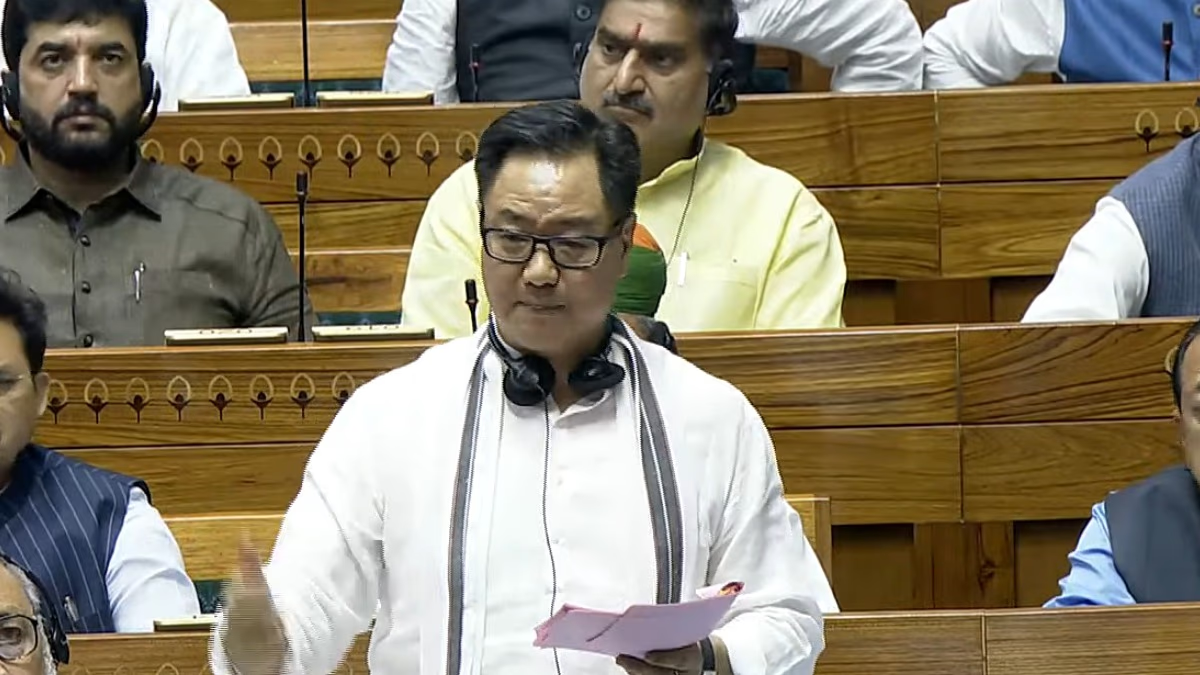Waqf Amendment Bill 2024
: On Wednesday, the Modi government introduced an amendment bill to the Waqf Board Act in the Lok Sabha. The bill triggered a heated debate in Parliament. While the opposition created a ruckus, Minority Affairs Minister Kiren Rijiju detailed why this bill is essential.
Appealing for support from the opposition, Rijiju said, 'Support this bill, and you will earn the prayers of millions. A few people have hijacked the entire Waqf Board. This bill aims to rectify the injustices faced by ordinary Muslims. History will record who supported and who opposed this bill.'
The Minority Affairs Minister continued, 'First, let me address why we should not stay this notice. I will provide concise answers for each objection raised by the opposition. Here’s why we need this bill, explained in 10 points.'
1-
The bill's provisions from Article 25 to 30 do not interfere with any religious body and do not violate any constitutional articles. This bill is designed to grant rights to those who have been deprived, rather than taking away anyone's rights. It aims to include provisions for women, children, and marginalized Muslims who have never had the opportunity.
Read More: 'Waqf Board Occupied by Mafia, Bill Needed for People's Interest', says Rijiju in Parliament
2-
Rijiju stated that the opposition's arguments against the bill do not stand. The bill does not violate any constitutional provisions and does not interfere with any religion. It is intended to provide opportunities to those suppressed. He also mentioned a Supreme Court decision supporting this. The Indian government has the right to introduce such bills.
3-
He noted, 'This is not the first time this Waqf Amendment Bill is being presented. This act was first introduced in 1954 and has since seen several amendments. The amendments we are proposing are necessary to correct the 2013 provisions, which altered the 1995 Waqf Act.'
4-
The 1995 provisions have been assessed by various committees and individuals, revealing flaws. Rijiju said, 'We are here to rectify the steps you (Congress) took but couldn’t complete during your tenure.'
5-
Rijiju cited specific cases, such as the Bohra community in Mumbai and a 1500-year-old Sundreshwar Temple in Tamil Nadu, where Waqf Board declarations have caused significant disruption. He also referred to the Karnataka Minority Commission's 2012 report revealing that 29,000 acres were converted into commercial property by the Waqf Board.
6-
A 1976 Waqf Inquiry Report recommended proper management and discipline for Waqf Boards, including audits and account systems, which have been lacking.
7-
The Congress government formed two committees, including the Sachar Committee in 2005, focused on the welfare of Muslims. The Sachar Committee highlighted the under-utilization of Waqf properties and recommended increased participation and accountability.
8-
The Sachar Committee's recommendations included better management of Waqf properties, which could yield significantly higher returns, and the inclusion of more members, including women, on the Waqf Board.
9-
Rijiju argued that opposition parties should commend the government for this bill, as it has undergone extensive consultation over the past decade. Many members privately support the bill but are restrained by political pressures.
Read More: Modi Government’s Big Plan! Preparing 40 Amendments in Waqf Act
10-
Since 2014, thousands of people have been consulted. In the past year alone, 194 complaints were received online related to Waqf. Extensive consultations were held with various Muslim communities and Waqf Board officials to gather recommendations for the amendment.




